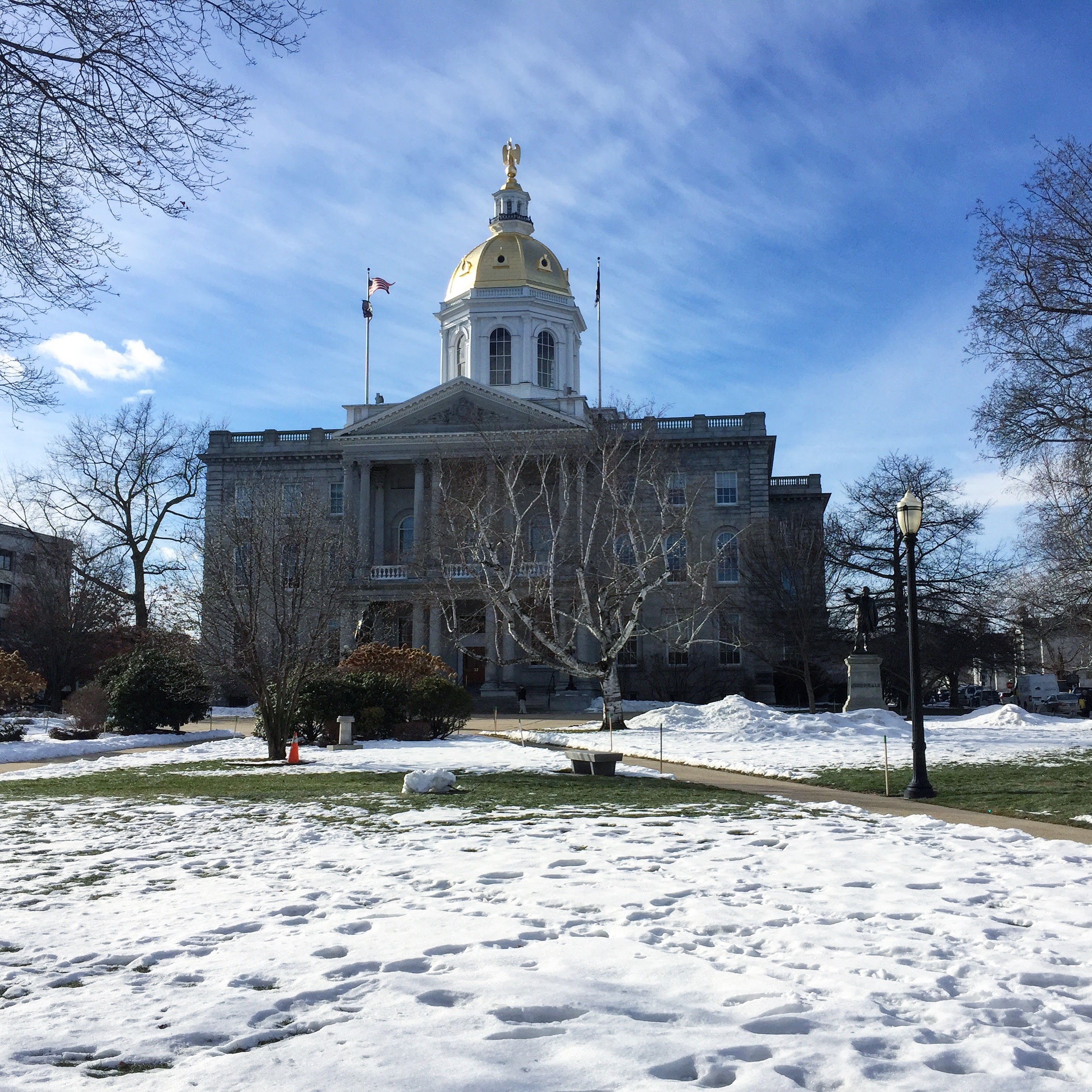What’s Happening With the N.H. House Democratic Caucus?

For the third time this legislative session, a House Democrat switched party affiliation in New Hampshire, highlighting that Democrats are also struggling to remain unified in Concord. It’s been well-documented that House Republicans still have deep wounds from the 2016 election, with two conservative caucuses that have caused trouble for GOP leadership. However, with three lawmakers jumping ship from the party, there are some internal conflicts happening within the Democratic caucus.
In total, four lawmakers have changed their party affiliation since the November election. Two Democrats left the party to join the Republican Party and a third left for the Libertarian Party of New Hampshire (LPNH). The fourth representative left the Republican Party for the LPNH.
Rep. Joseph Stallcop of Keene was the latest House members on Wednesday to switch his party affiliation. He switched from the Democratic Party to the LPNH.
“Personally witnessing the situation at Standing Rock showed me the danger of relinquishing power and authority into an institution, while my time in Concord reinforced the ineptitude that can exist by those in charge,” he said. “I originally joined the Democratic Party in hopes of making a difference through critical thinking and my classical liberal viewpoint, yet with the lack of unbiased data in caucuses as well as backlash on votes I’ve independently made, it seems there is no longer a place for me here.”
LPNH is having a banner year since the November elections. Another lawmaker, Rep. Caleb Dwyer of Pelham switched from the Republican Party to the LPNH in February. The party also garnered enough of the votes in the gubernatorial race to give them official ballot access in 2018.
Max Abramson ran as the Libertarian candidate in 2016, against now-Gov. Chris Sununu and Democratic nominee Colin Van Ostern. He received 4 percent of the vote, the required amount to gain ballot access.
It’s the first time in 20 years that the LPNH had ballot access. When they last had it in the 1990s, the party had four members in the Legislature. Then in 1997, ballot access laws changed to increase the vote threshold needed for a party to retain ballot access from 3 percent to 4 percent.
LPNH Chairman Darryl W. Perry called Stallcop’s switch a “historic day” since it’s the first time in two decades that they have a Libertarian caucus.
Rep. Mariellen MacKay of Nashua changed her Democratic affiliation to Republican in April and Rep. Robert Theberge of Berlin also changed from Democrat to Republican right after the November election.
So now, the House membership is 221 Republicans, 170 Democrats, and two Libertarians. There are six vacancies due to death, resignation, or appointment to a position in Sununu’s administration. One representative has not been officially sworn in yet.
In a House with 400 members, one would think that party changes are pretty common. That’s actually not the case in New Hampshire, or even nationally. According to Ballotpedia, there have only been 79 current legislators in State Houses across the United States who have switched parties since 2007. One of the last people to switch parties in New Hampshire was Sen. Lou D’Allesandro of Manchester. After serving two years as a Republican in the House, in 1998 he ran as a Democrat for the Senate where he still holds a seat and is still a Democrat.
Jumping on the chance to criticize the Democratic Party for losing members, NHGOP Chair Jeanie Forrester blasted out a statement once the news came out on Wednesday that Stallcop was leaving the party.
“Would the last one in the New Hampshire Democrat Party please turn out the lights? Yet another former Democrat has concluded that the party of big government and obstruction is no longer worth being a member of,” she said. “Meanwhile, a significant majority of Granite Staters approve of the job Republican Gov. Chris Sununu is doing in the Corner Office. That’s because working families know that from improving education to investing in infrastructure to strengthening the economy, Republicans are working hard to improve the quality of life for Granite Staters every day.”
House Minority Leader Steve Shurtleff said people shouldn’t read much into three people leaving his caucus.
“It’s just kind of a shakeout,” he told the New Hampshire Union Leader.
However, other Democratic representatives are saying there is a lot of “dissatisfaction” in the caucus.
“Most Democrats would think with the controversy around Trump, we might gain some Republicans, more moderates, and yet we are losing Democrats,” said Rep. Peter Leishman, D-Peterborough.
The current dynamics of the New Hampshire Democratic Party often mirror the national party on what its role should be in GOP-led politics. For the first time in nearly a decade, Democrats are fully the minority party. The U.S. Congress is Republican-run and the White House has a Republican president. The same is true in New Hampshire where Democrats are in the minority of a GOP-legislature and the first Republican governor in 12 years.
The problem is that there are differences of opinion between Democratic lawmakers on what their role is in the New Hampshire House. They’re trying to figure out how to navigate their position and get their legislative priorities passed.
At the national level, many Democrats have been adopting the “resistance” mindset by voting against any GOP bill or watching Republicans fight amongst themselves, as exhibited during the health care debate.
So far, New Hampshire House Democrats have been largely sitting back and watching Republican Party infighting derail the GOP’s own political agenda. Yet, some Democrats want the party to push back more against the Republicans.
This conflict was on full display during the chaotic budget debate in April. After the House failed to pass a budget on the first day due to conservatives voting against it, some Democrats were willing to work with Republican leadership to get something passed. Two Democrats took to the House floor to encourage its caucus to vote for the state budget rider, which was in direct opposition to what Shurtleff told them to do. In the end, 14 Democrats voted in favor of the bill to get a budget passed, but it failed 169-177.
While their party disagreements aren’t as noticeable as the Republicans, its crucial that there is unity within the caucus if they want to block future GOP bills, like they did with right-to-work earlier this year. It’s also important when it comes time to craft a message for elections next year.
One of their next big tests will be in June when the final state spending plan comes back to the House. If conservatives still vote against the budget, House Speaker Shawn Jasper might need to ask them for support. What they do in that moment could set the tone for 2018.
Sign up for NH Journal’s must-read morning political newsletter.






